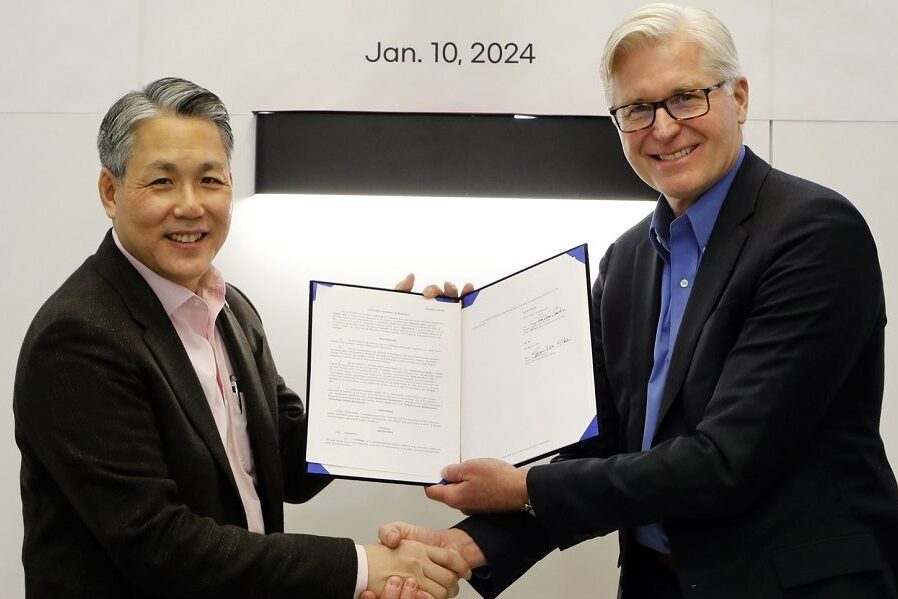SK On & Solid Power to expand battery partnership
Following SK On’s investment in Solid Power in 2021, the South Korean company is now acquiring licenses to use Solid Power’s cell technology for its research and development and to produce solid-state battery cells on a new pilot line in South Korea, which will be installed by Solid Power by 2025.
SK On will also purchase electrolytes from Solid Power – initially for the new pilot line and then at least eight tons until 2030. Following validation, SK On will have to purchase at least eight metric tonnes of electrolyte from Solid Power through 2030, which it says it will use to collaborate with Solid Power in advancing its cell technologies. Depending on volumes, Solid Power expects to receive at least $10 million from these electrolyte sales and Solid Power expects the new agreements with SK On to generate sales of at least USD 50 million.
As indicated above, the new agreement will focus on three areas: Research and development, Line installation and Electrolyte supply. For the research activities, “SK On will license Solid Power’s solid-state cell designs and manufacturing processes in exchange for payments totalling $20 million from 2024 to 2027, upon achievement of milestones.” Under the deal, SK On will only be able to use the technology for research, and may not be used for commercial production.
Regarding the line installation, Solid Power plans to design, procure, and install a new cell manufacturing line at one of SK On’s Korea facilities in exchange for an estimated $22 million. Construction of the line will begin in 2024 and is expected to be completed in 2025.
“This expanded arrangement with SK On provides the framework for closer collaboration with one of the industry’s leading battery manufacturers and increases our presence in one of the world’s most strategically important battery markets,” said John Van Scoter, President and Chief Executive Officer of Solid Power. “This is another meaningful vote of confidence for our solid-state battery technology. This deepened relationship strengthens our competitive position as we progress towards commercialization.”





0 Comments